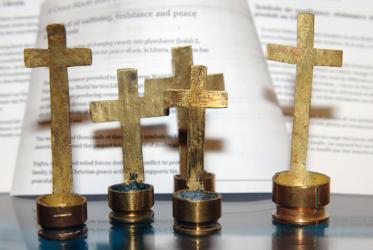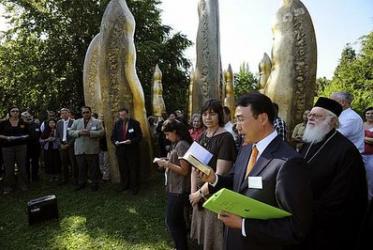Displaying 1 - 12 of 12
04 January 2018
Plans for 2017 decided by WCC Executive Committee
01 December 2016
New Executive Committee members elected in Trondheim
28 June 2016
WCC commission promotes ecumenical learning and education
26 February 2015
The new Arms Trade Treaty: a life-saving gift this Christmas
19 December 2014
By train to Busan: Journeying for peace in Korea
28 October 2013
Churches engage in development dialogue on Africa
06 March 2013
Churches must be "salt of the earth"
31 August 2009




